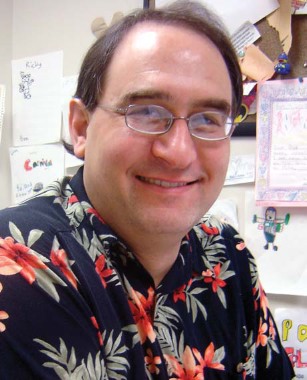User login
I like to start early. How early? Usually I get up around 4:00 a.m.
Years ago I did this so I’d have time to round at the hospital. My inpatient days are (mostly) behind me now, but after years of my alarm clock waking me at 4:00, my internal alarm has long since taken over. It wakes me within 5 minutes of 4:00 every weekday, and I no longer set my clock (let’s hear it for the suprachiasmatic nucleus).
Does this bother me? Not at all. It gives me a degree of peace in my day. I drive the 2 miles to my office on empty roads. My office is quiet. I can play music on my computer without bothering anyone. I make tea.
It gives me time to finish the previous day’s dictations and paperwork. In a modern medical practice there’s always something to do: notes to dictate, forms to complete, refills to authorize, test results to review and make decisions on, and outside records to read. So I sit at my desk, listen to music, drink tea, and catch up.
Even when that’s all done, there’s still stuff to do, such as refreshing myself on test results and my notes on patients coming in that day, ordering office supplies, and reading through the occasional legal case.
I don’t mind this. It beats coming in 5 minutes before the first patient to find that my secretary has three urgent messages for me, there’s nine prescription refills to do, and an established patient just walked in to say he felt weak on the left.
Getting up early doesn’t solve the day’s problems, but getting a head start on them helps. It also lets me leave the office when my last patient is done to do more important things, like picking up my kids after school and going to their activities.
Dr. Block has a solo neurology practice in Scottsdale, Ariz.
I like to start early. How early? Usually I get up around 4:00 a.m.
Years ago I did this so I’d have time to round at the hospital. My inpatient days are (mostly) behind me now, but after years of my alarm clock waking me at 4:00, my internal alarm has long since taken over. It wakes me within 5 minutes of 4:00 every weekday, and I no longer set my clock (let’s hear it for the suprachiasmatic nucleus).
Does this bother me? Not at all. It gives me a degree of peace in my day. I drive the 2 miles to my office on empty roads. My office is quiet. I can play music on my computer without bothering anyone. I make tea.
It gives me time to finish the previous day’s dictations and paperwork. In a modern medical practice there’s always something to do: notes to dictate, forms to complete, refills to authorize, test results to review and make decisions on, and outside records to read. So I sit at my desk, listen to music, drink tea, and catch up.
Even when that’s all done, there’s still stuff to do, such as refreshing myself on test results and my notes on patients coming in that day, ordering office supplies, and reading through the occasional legal case.
I don’t mind this. It beats coming in 5 minutes before the first patient to find that my secretary has three urgent messages for me, there’s nine prescription refills to do, and an established patient just walked in to say he felt weak on the left.
Getting up early doesn’t solve the day’s problems, but getting a head start on them helps. It also lets me leave the office when my last patient is done to do more important things, like picking up my kids after school and going to their activities.
Dr. Block has a solo neurology practice in Scottsdale, Ariz.
I like to start early. How early? Usually I get up around 4:00 a.m.
Years ago I did this so I’d have time to round at the hospital. My inpatient days are (mostly) behind me now, but after years of my alarm clock waking me at 4:00, my internal alarm has long since taken over. It wakes me within 5 minutes of 4:00 every weekday, and I no longer set my clock (let’s hear it for the suprachiasmatic nucleus).
Does this bother me? Not at all. It gives me a degree of peace in my day. I drive the 2 miles to my office on empty roads. My office is quiet. I can play music on my computer without bothering anyone. I make tea.
It gives me time to finish the previous day’s dictations and paperwork. In a modern medical practice there’s always something to do: notes to dictate, forms to complete, refills to authorize, test results to review and make decisions on, and outside records to read. So I sit at my desk, listen to music, drink tea, and catch up.
Even when that’s all done, there’s still stuff to do, such as refreshing myself on test results and my notes on patients coming in that day, ordering office supplies, and reading through the occasional legal case.
I don’t mind this. It beats coming in 5 minutes before the first patient to find that my secretary has three urgent messages for me, there’s nine prescription refills to do, and an established patient just walked in to say he felt weak on the left.
Getting up early doesn’t solve the day’s problems, but getting a head start on them helps. It also lets me leave the office when my last patient is done to do more important things, like picking up my kids after school and going to their activities.
Dr. Block has a solo neurology practice in Scottsdale, Ariz.
